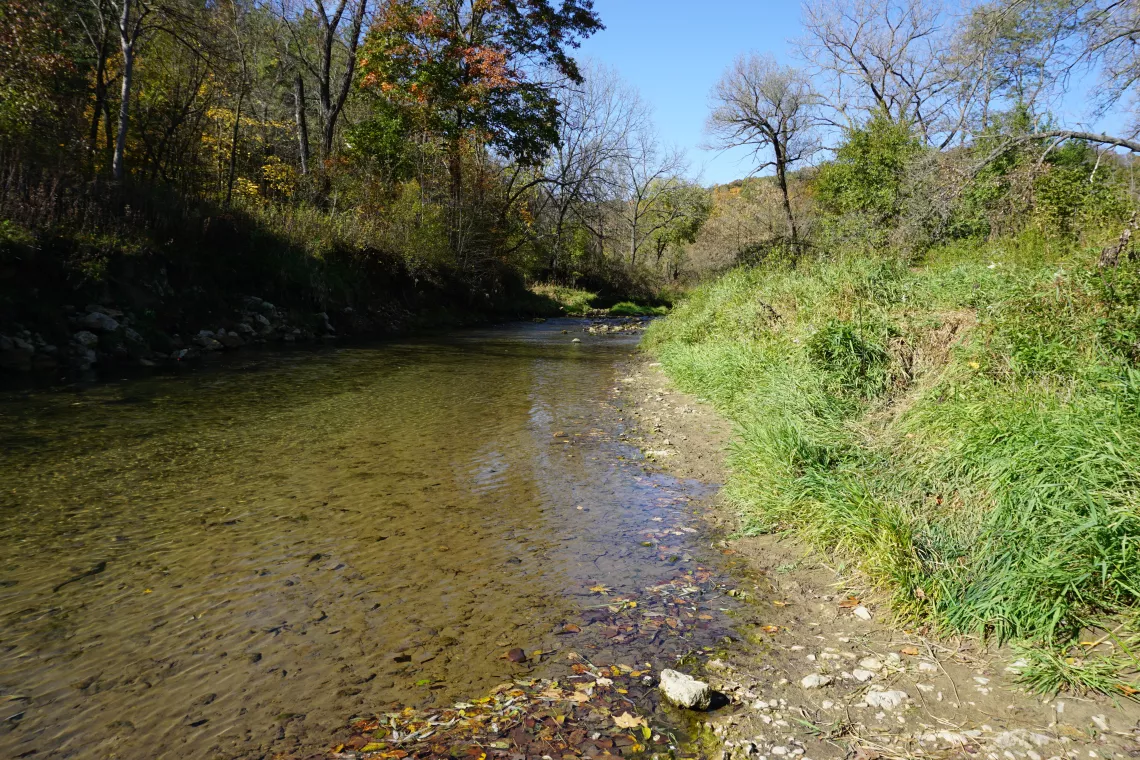Increase DNR Budget for Water Quality
Iowans have been calling for improving water quality in our rivers, streams, and lakes. It has become clear that the Iowa Department of Natural Resources (DNR) needs funding to support the efforts in improving water quality.
Two areas are key:
-
The staff writing NPDES permits needs to be increased, along with the funding they need to do their work.
-
The staff working on animal feeding operations - confinements and open feedlots - needs to be increased in order to support reviewing and monitoring the nutrient and manure management plans. Additional funding is needed for inspections and enforcement of violators.
Within the DNR, several staff work on writing and renewing NPDES (National Pollution Discharge Elimination System) permits, which regulate the pollutants that industries and sewage treatment plants can discharge into rivers and streams. That group is so understaffed that they are dealing with a long backlog of expired permits, some many years past due. Now, even with an expired permit, the discharger must continue following the limits on pollutants on its expired permit. However, any new protocols or restrictions on pollutants cannot be added to an expired permit. What this means is that the discharger may be allowed to discharge too much pollution, given current allowed levels, creating unnecessary pollution in the rivers and streams.
Although, there are many reasons why a permit has not been updated and renewed, one of the key reasons is that the DNR needs to perform a Use Attainability Analysis (UAA) before the new permit can be issued. That requires DNR staff to go on-site and look at the receiving stream or river to determine the chemical, physical, and biological, and economic uses of that stretch of the waterbody. That scientific assessment is used to create permit limits. The DNR simply does not have enough staff to perform the assessment and to complete the UAA process.
The Sierra Club's work on the Supreme Beef confinement near the Bloody Run Creek trout stream and its successful lawsuit identified how lax the DNR has been in reviewing and monitoring the nutrient and manure management plans. The DNR staff give a cursory review of the nutrient and manure application plans, ensuring that there are numbers put in the boxes on the form. There is no double checking that the numbers are correct and that the numbers have been used correctly in the calculations. The calculations determine how much manure can be applied to a farm field. Too much manure will lead to runoff from the field into a river, stream, or lake. It is manure, along with fertilizer, that cause algae blooms and the toxic microcystin toxins in Iowa's lakes, both of which lead to swim advisories and risks to human and animal health.
Furthermore, there is no follow-up with the writers of the plans, who are paid by confinement and feedlot owners to produce the plans - to ensure that the plans are correct. With additional funding, the staff can ensure that future manure and nutrient management plans are correct.
With adequate funding, the DNR staff can improve their oversight of the confinement and feedlots in Iowa.
Improving the water quality of the state is a win-win for Iowans:
-
waterbodies are cleaner, which encourages Iowans to recreate in the state.
-
tourists will be encouraged to come to Iowa and enjoy Iowa's lakes, streams, and rivers
-
with reduced pollution entering water bodies, our drinking water is protected, both municipal water and private wells
Ask your state senator and state representative to support additional funding the Iowa Department of Natural Resources to support staff who write NPDES permits, perform Use Attainability Analysis, and manage the confinements and feedlots in Iowa.
Email, address, and phone number for Representatives
Email, addresses, and phone numbers for Senators
Photo below: Bloody Run Creek in Clayton County, Iowa.
